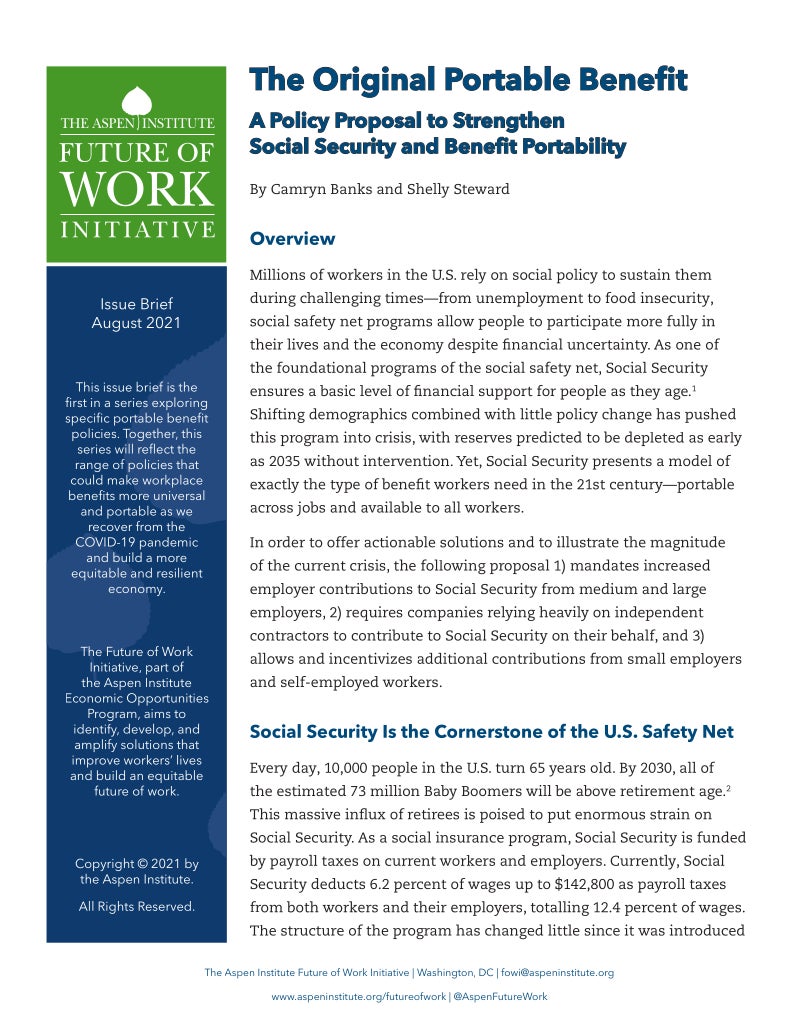Millions of workers in the U.S. rely on social policy to sustain them during challenging times—from unemployment to food insecurity, social safety net programs allow people to participate more fully in their lives and the economy despite financial uncertainty. As one of the foundational programs of the social safety net, Social Security ensures a basic level of financial support for people as they age. Shifting demographics combined with little policy change has pushed this program into crisis, with reserves predicted to be depleted as early as 2035 without intervention. Yet, Social Security presents a model of exactly the type of benefit workers need in the 21st century—portable across jobs and available to all workers.
In order to offer actionable solutions and to illustrate the magnitude of the current crisis, the following proposal 1) mandates increased employer contributions to Social Security from medium and large employers, 2) requires companies relying heavily on independent contractors to contribute to Social Security on their behalf, and 3) allows and incentivizes additional contributions from small employers and self-employed workers.
Share
Tweet Brief: “The Original Portable Benefit: A Policy Proposal to Strengthen Social Security and Benefit Portability” by @banks_camryn and @shellysteward of @AspenFutureWork.
Tweet With increasing attention to the need for universal, portable benefits, this brief from @AspenFutureWork explores how to preserve and strengthen Social Security—the original portable benefit.
Tweet How can modern benefits proposals learn from the original portable benefit? Read @AspenFutureWork’s brief on strengthening Social Security. By @banks_camryn and @shellysteward.
Tweet Social Security presents a model of exactly the type of benefit workers need in the 21st century—portable across jobs and available to all workers. Read more from @banks_camryn and @shellysteward of @AspenFutureWork.
Learn More
The Future of Work Initiative aims to identify, develop, and amplify solutions that address the challenges of today while building toward a future in which workers are safe, empowered, and equipped to thrive in our changing world. The Future of Work Initiative is an initiative of the Economic Opportunities Program.
The Economic Opportunities Program advances strategies, policies, and ideas to help low- and moderate-income people thrive in a changing economy. Follow us on social media and join our mailing list to stay up-to-date on publications, blog posts, events, and other announcements.


